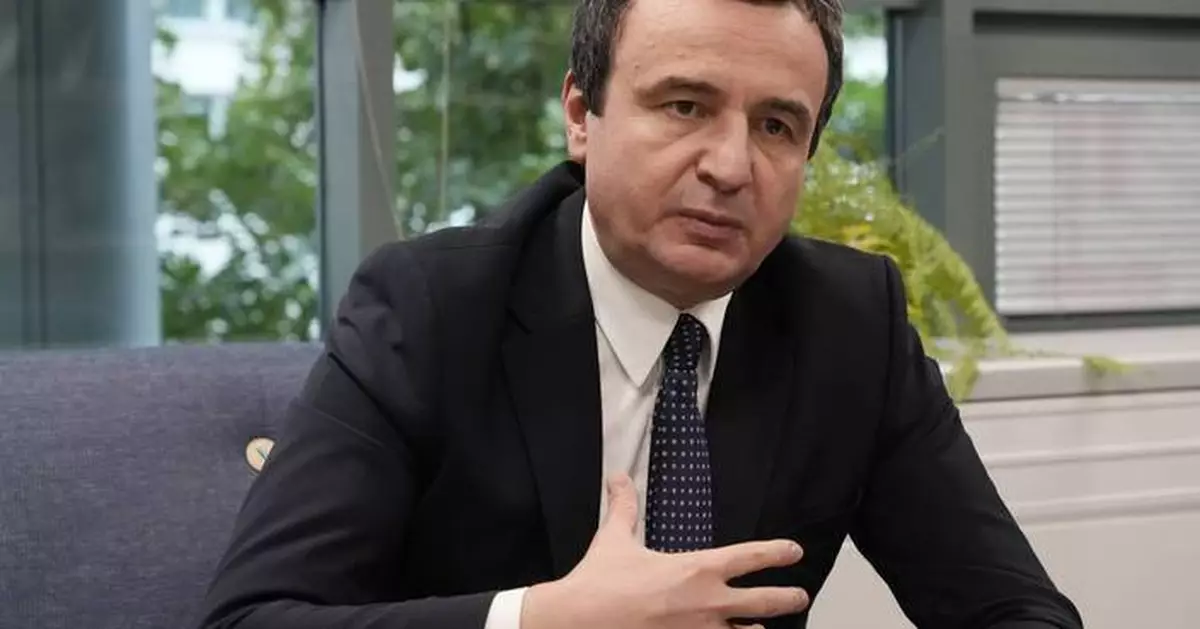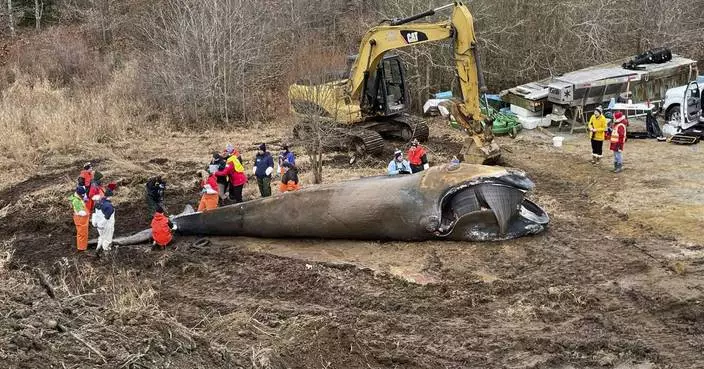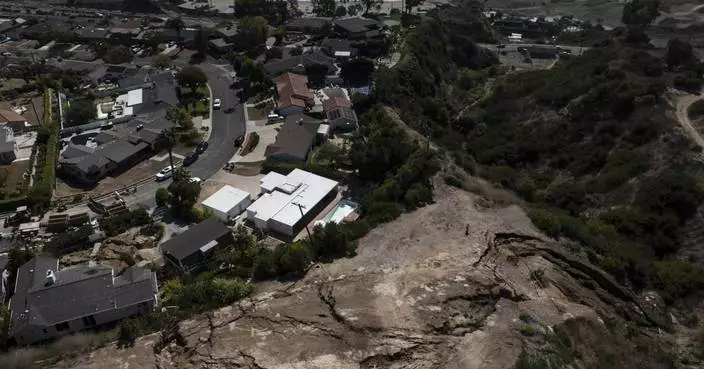WARSAW, Poland (AP) — Kosovo's prime minister said Thursday that the Balkan region has enjoyed the greatest degree of peace, freedom and democracy over the past 25 years but that this could be reversed if Russia prevails in Ukraine and encourages Serbian expansion.
Albin Kurti, who has served as Kosovo's leader since 2021, said it was important for the West to stand united in support of Ukraine as it defends itself against Russian aggression.
In an interview with The Associated Press, Kurti argued that a stronger Russia would embolden Serbia — and that not only Kosovo but also Bosnia, Montenegro and “perhaps North Macedonia” would be endangered by what he described as Serbian expansionist ambitions.
The relationship between Kosovo and Serbia remains tense and the 13-year-long normalization talks facilitated by the European Union have failed to make progress, especially following a shootout in September last year between masked Serb gunmen and Kosovo police that left four people dead.
NATO-led peacekeepers have also increased their numbers along the Kosovo-Serbia border.
“These 25 years in this century, this has been a quarter of a century with the highest degree of peace, freedom and democracy in the Balkans,” Kurti said.
He spoke at Kosovo's diplomatic mission in Warsaw, the Polish capital. The mission was opened after Poland and Kosovo established consular relations in 2022.
Asked what it would mean for Kosovo and the Balkans more broadly if Russia were to prevail in Ukraine, Kurti, said “with Serbia being a regional hegemon and Russian proxy, these 25 years of peace, freedom and democracy in the Balkans, unprecedented in our history, are at risk again.”
Serbian attempts to maintain dominance as the former Yugoslavia split up in the 1990s unleashed the most devastating wars in Europe since World War II — at least until Russia’s Feb. 24, 2022 invasion of Ukraine.
Kosovo was a Serbian province until NATO’s 78-day bombing campaign in 1999 ended a war between Serbian government forces and ethnic Albanian separatists in Kosovo, which left about 13,000 dead, mainly ethnic Albanians, and pushed Serbian forces out.
Serbia does not recognize Kosovo’s independence, proclaimed in 2008. Thousands of international peacekeepers are still in Kosovo to maintain peace with Serbia, which Kosovo seceded from in 2008.
“Despotic President Putin would be encouraged to proceed further with his destabilization attempts, even more so if he feels successful in Ukraine," Kurti said. "I really don’t want to believe that he can theoretically win. But him thinking that (he) can win is problematic enough.”
Kurti visited Poland as the central European nation prepares to take over the rotating presidency of the 27-member European Union next January. One of his goals is for Kosovo to join the EU, but five of the EU's members still do not even recognize Kosovo — Spain, Greece, Cyprus Romania and Slovakia.
Kurti noted that Spain began earlier this year to recognize Kosovo passports for those visiting.
“So there are these small steps," he said. "But you know, these small steps do not make one big necessary step, which is recognition.”
Kosovo, where 90% of the 1.6 million population is Albanian, is holding parliamentary elections next February, a vote that is expected to be a test for Kurti, whose governing party won in a landslide in the 2021.
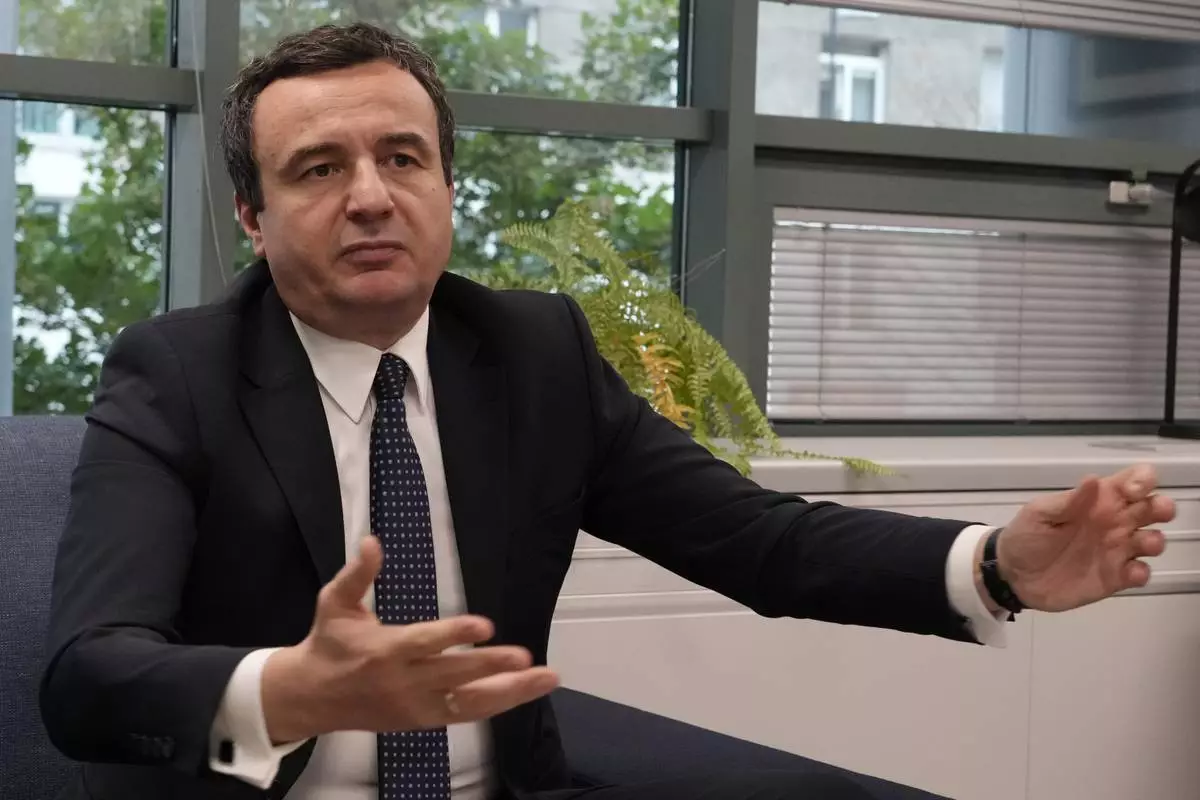
Kosovo Prime Minister Albin Kurti speaks to The Associated Press, Thursday, Oct. 3, 2024, in Warsaw, Poland. (AP Photo/Czarek Sokolowski)
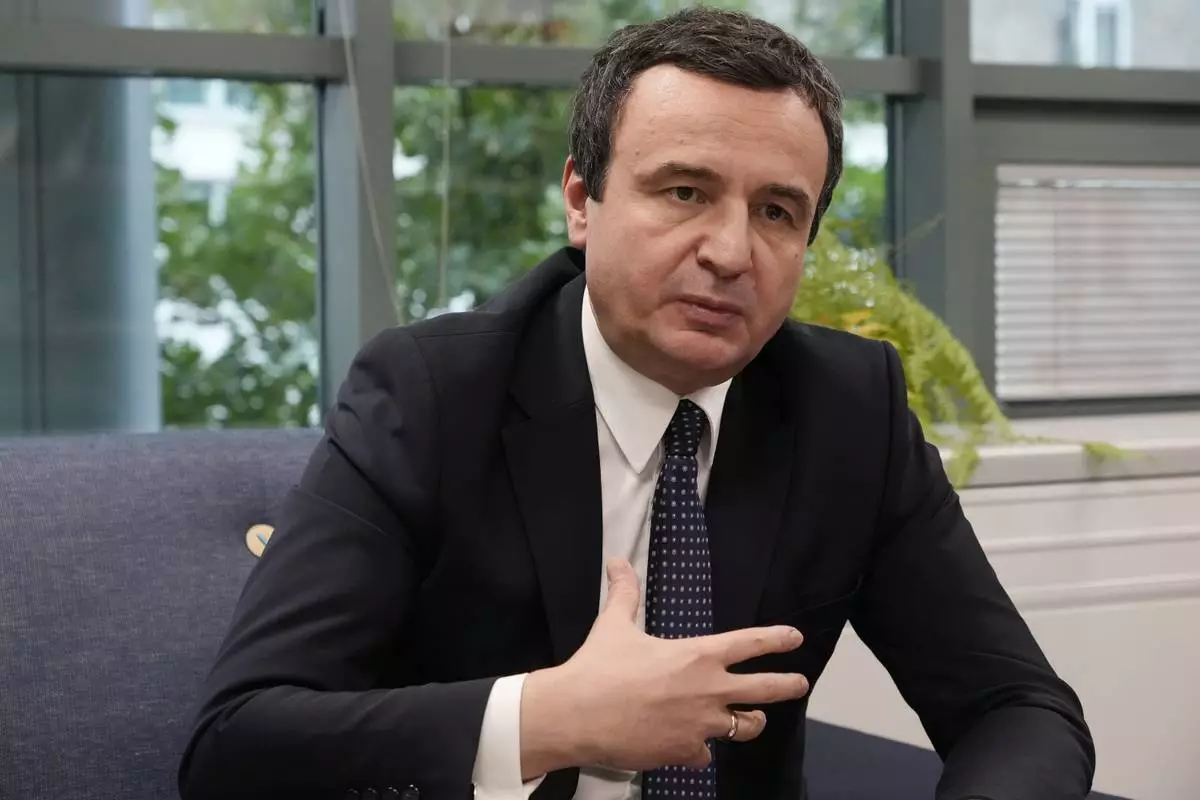
Kosovo Prime Minister Albin Kurti speaks to The Associated Press, Thursday, Oct. 3, 2024, in Warsaw, Poland. (AP Photo/Czarek Sokolowski)
SAN FRANCISCO (AP) — Google is injecting its search engine with more artificial intelligence that will enable people to voice questions about images and occasionally organize an entire page of results, despite the technology's past misadventures with misleading information.
The latest changes announced Thursday herald the next step in an AI-driven makeover that Google launched in mid-May when it began responding to some queries with summaries written by the technology at the top of its influential results page. Those summaries, dubbed “AI Overviews,” raised fears among publishers that fewer people would click on search links to their websites and undercut the traffic needed to sell digital ads that help finance their operations.
Google is addressing some of those ongoing worries by inserting even more links to other websites within the AI Overviews, which already have been reducing the visits to general news publishers such as The New York Times and technology review specialists such as TomsGuide.com, according to an analysis released last month by search traffic specialist BrightEdge.
The same study found the citations within AI Overviews are driving more traffic to highly specialized sites such as Bloomberg.com and the National Institute of Health.
Google's decision to pump even more AI into the search engine that remains the crown jewel of its $2 trillion empire leaves little doubt that the Mountain View, California, company is tethering its future to a technology propelling the biggest industry shift since Apple unveiled the first iPhone 17 years ago.
The next phase of Google's AI evolution builds upon its 7-year-old Lens feature that processes queries about objects in a picture. The Lens option is now generates more than 20 billion queries per month, and is particularly popular among users from 18 to 24 years old. That's a younger demographic that Google is trying to cultivate as it faces competition from AI alternatives powered by ChatGPT and Perplexity that are positioning themselves as answer engines.
Now, people will be able to use Lens to ask a question in English about something they are viewing through a camera lens — as if they were talking about it with a friend — and get search results. Users signed up for tests of the new voice-activated search features in Google Labs will also be able to take video of moving objects, such as fish swimming around aquarium, while posing a conversational question and be presented an answer through an AI Overview.
“The whole goal is can we make search simpler to use for people, more effortless to use and make it more available so people can search any way, anywhere they are,” said Rajan Patel, Google's vice president of search engineering and a co-founder of the Lens feature.
Although advances in AI offer the potential of making search more convenient, the technology also sometimes spits out bad information — a risk that threatens to damage the credibility of Google's search engine if the inaccuracies become too frequent. Google has already had some embarrassing episodes with its AI Overviews, including advising people to put glue on pizza and to eat rocks. The company blamed those missteps on data voids and online troublemakers deliberately trying to steer its AI technology in a wrong direction.
Google is now so confident that it has fixed some of its AI's blind spots that it will rely on the technology to decide what types of information to feature on the results page. Despite its previous bad culinary advice about pizza and rocks, AI will initially be used for the presentation of the results for queries in English about recipes and meal ideas entered on mobile devices. The AI-organized results are supposed to be broken down into different groups of clusters consisting of photos, videos and articles about the subject.
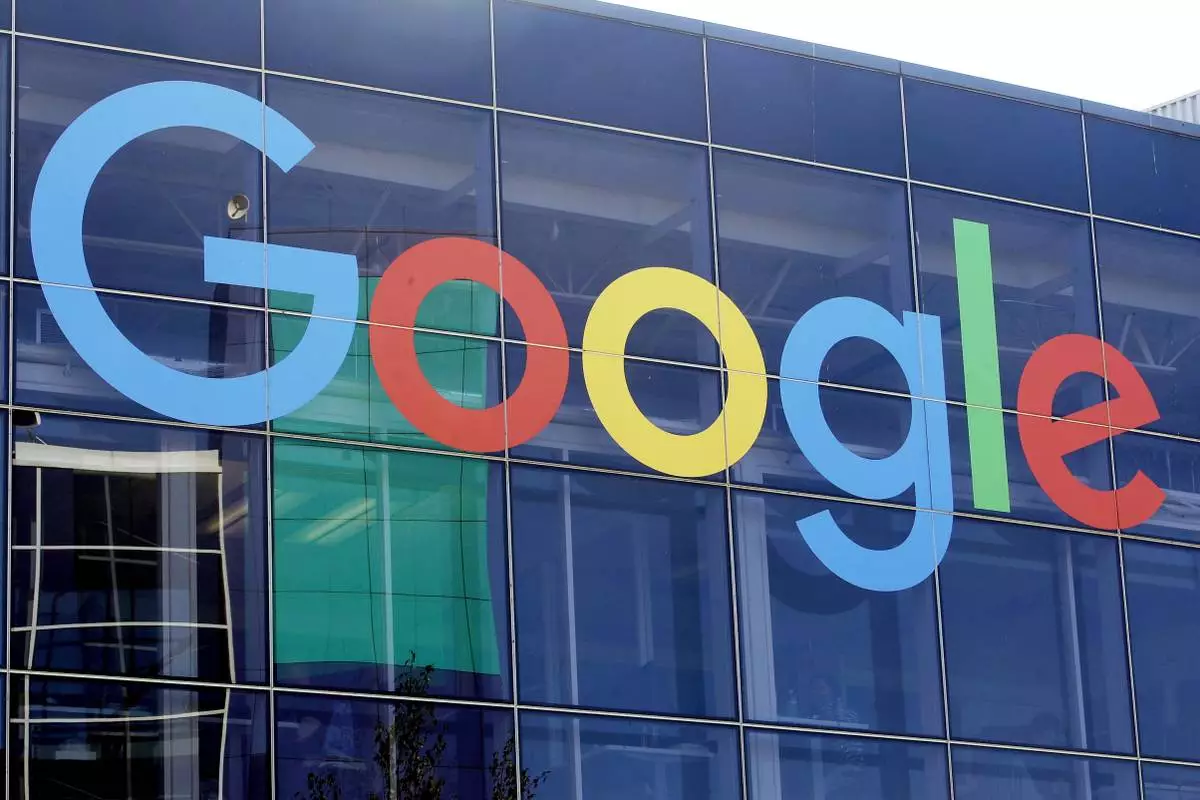
FILE - A sign is shown on a Google building at their campus in Mountain View, Calif., on Sept. 24, 2019. (AP Photo/Jeff Chiu, File)
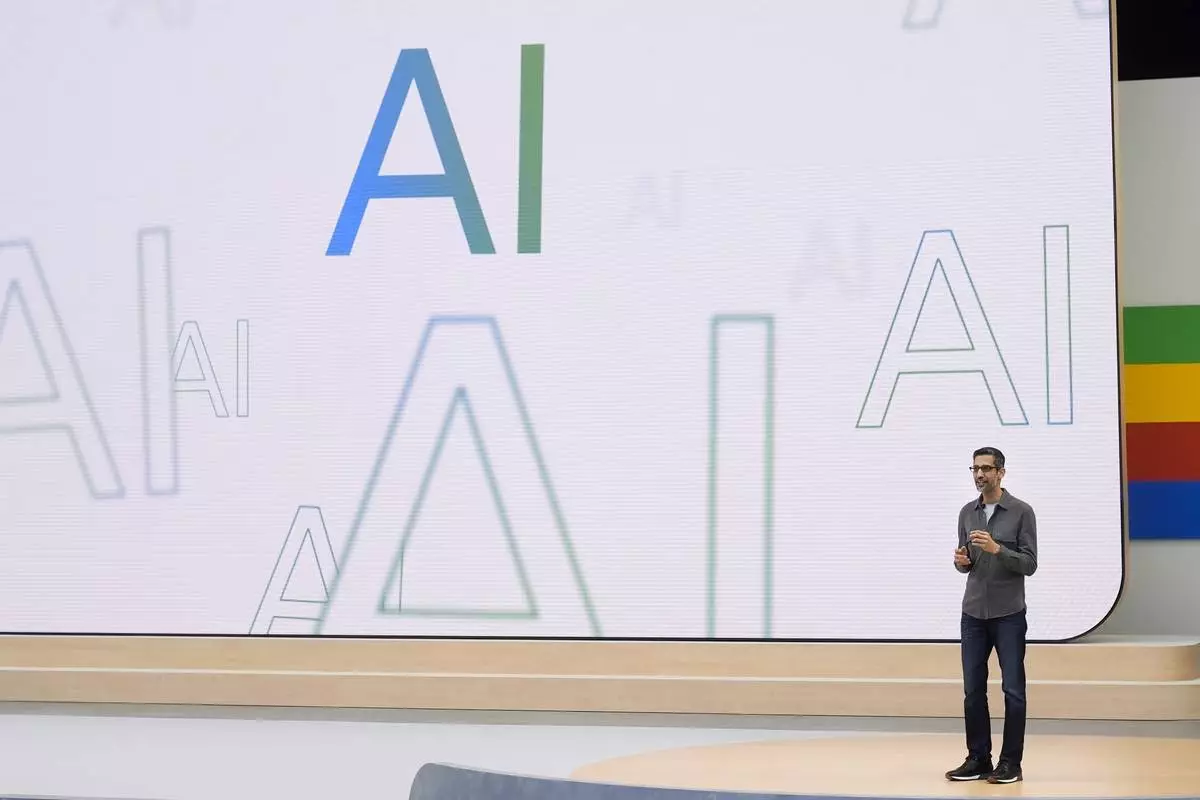
FILE - Alphabet CEO Sundar Pichai speaks at a Google I/O event in Mountain View, Calif., May 14, 2024. (AP Photo/Jeff Chiu, File)




